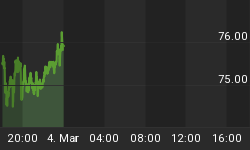Market Watch is reporting Fed ready to act in a financial crisis.
The Federal Reserve stands ready to lower interest rates if a financial crisis erupts, said Tim Geithner, the president of the New York Fed, on Wednesday. "As always, central banks need to stand prepared to make appropriate monetary policy adjustments if changes in financial conditions would otherwise threaten the achievement of the goals of price stability and sustainable economic growth," Geithner said in a speech about liquidity in financial markets to a business group.
Geithner said his remarks were general in nature and not related to "the specific conditions of the moment" where the stock prices plunged around the world. Geithner said liquidity, like market confidence, is very difficult to measure and a reversal of both liquidity and confidence play a critical role in leading to financial shocks. Geithner said financial regulators have a difficult time in predicting when liquidity may reverse.
The best way to limit the risk of crisis is shock absorbers in the financial system. "These shock absorbers are substantially stronger today that they have been even in the relatively recent past," Geithner said.
Exactly who does Geithner think he is fooling when he said his comments were general in nature and not related to the "specific conditions of the moment". Even if by some miracle those were planned comments that just happened to come when they did, Geithner without a doubt proved he is just another Fed charlatan.
One of the reasons bubbles keep getting bigger and bigger is because the Fed has a history of being ready and willing to act. Market participants know the fed is ready and willing and plan on the Fed bailing them out when risk gets blown out of the water.
Geithner is now openly bragging "These shock absorbers are substantially stronger today that they have been even in the relatively recent past". There is a curious thing about those shock absorbers, though: It seems they have get stronger and stronger to work. The last "shock absorber" took interest rates down to 1% while creating the mother of all bubbles in credit lending and housing. What's next ye great wizards?
The best way to limit risk is to not let asset bubbles and risky conditions foment in the first place. Instead, the charlatans at the Fed are depending on shock absorbers to cover up their own mistakes. Eventually (perhaps it has started already, perhaps not), one of those shock absorbers will fail. That is when the charlatans at the Fed will be exposed for what they are.















